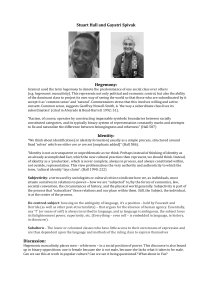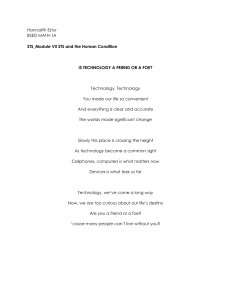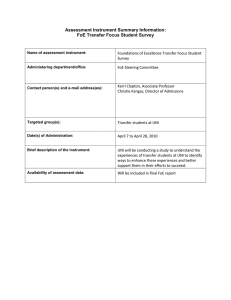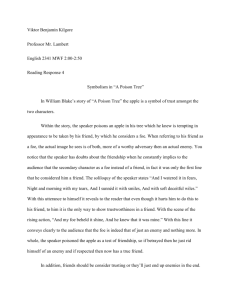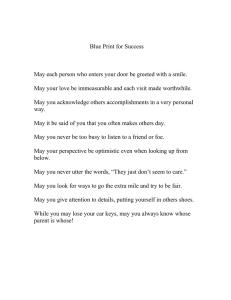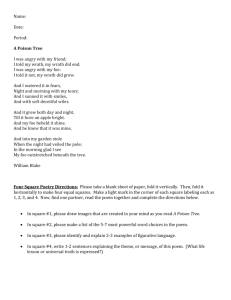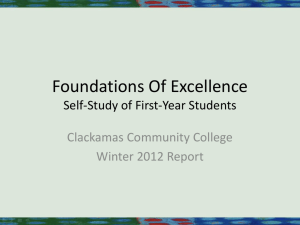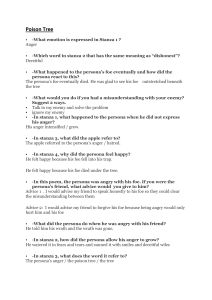Foe
advertisement
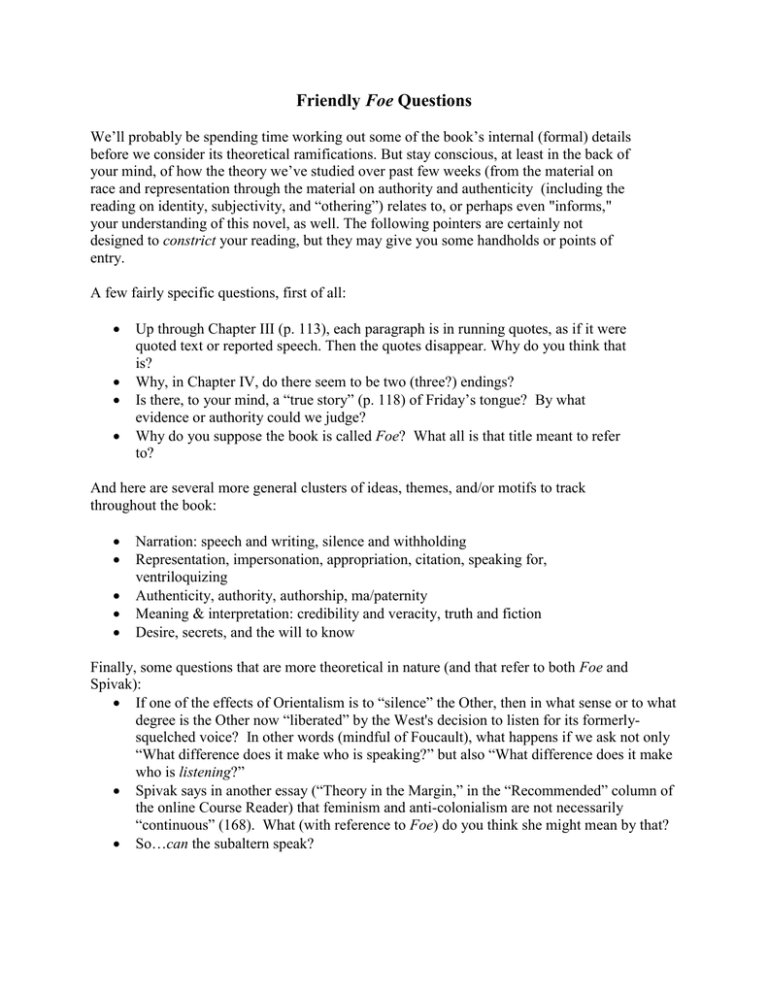
Friendly Foe Questions We’ll probably be spending time working out some of the book’s internal (formal) details before we consider its theoretical ramifications. But stay conscious, at least in the back of your mind, of how the theory we’ve studied over past few weeks (from the material on race and representation through the material on authority and authenticity (including the reading on identity, subjectivity, and “othering”) relates to, or perhaps even "informs," your understanding of this novel, as well. The following pointers are certainly not designed to constrict your reading, but they may give you some handholds or points of entry. A few fairly specific questions, first of all: Up through Chapter III (p. 113), each paragraph is in running quotes, as if it were quoted text or reported speech. Then the quotes disappear. Why do you think that is? Why, in Chapter IV, do there seem to be two (three?) endings? Is there, to your mind, a “true story” (p. 118) of Friday’s tongue? By what evidence or authority could we judge? Why do you suppose the book is called Foe? What all is that title meant to refer to? And here are several more general clusters of ideas, themes, and/or motifs to track throughout the book: Narration: speech and writing, silence and withholding Representation, impersonation, appropriation, citation, speaking for, ventriloquizing Authenticity, authority, authorship, ma/paternity Meaning & interpretation: credibility and veracity, truth and fiction Desire, secrets, and the will to know Finally, some questions that are more theoretical in nature (and that refer to both Foe and Spivak): If one of the effects of Orientalism is to “silence” the Other, then in what sense or to what degree is the Other now “liberated” by the West's decision to listen for its formerlysquelched voice? In other words (mindful of Foucault), what happens if we ask not only “What difference does it make who is speaking?” but also “What difference does it make who is listening?” Spivak says in another essay (“Theory in the Margin,” in the “Recommended” column of the online Course Reader) that feminism and anti-colonialism are not necessarily “continuous” (168). What (with reference to Foe) do you think she might mean by that? So…can the subaltern speak?
